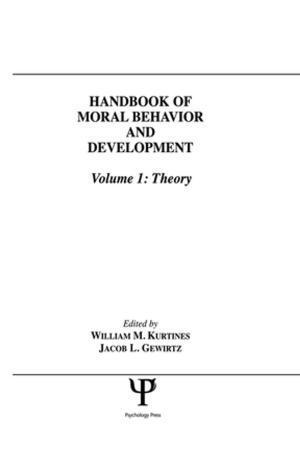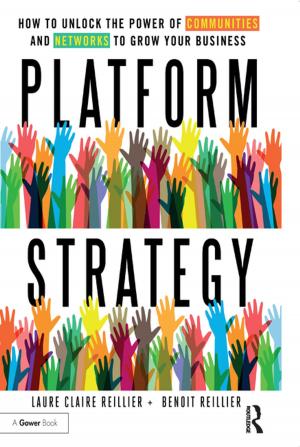| Author: | Lancelot Whyte | ISBN: | 9781351478328 |
| Publisher: | Taylor and Francis | Publication: | September 29, 2017 |
| Imprint: | Routledge | Language: | English |
| Author: | Lancelot Whyte |
| ISBN: | 9781351478328 |
| Publisher: | Taylor and Francis |
| Publication: | September 29, 2017 |
| Imprint: | Routledge |
| Language: | English |
This searching examination of human development provides new perspectives on the moral, political, scientific, emotional, and intellectual divisions of our time. A physicist by profession, Whyte looked beyond the boundaries of specialization for creative ways to approach the basic problem facing modern Western civilization: Why are we so competent technically and yet unable to order our own affairs, socially and personally? He takes the reader with him on a journey that is nothing less than a new interpretation of the general development of human consciousness.Whyte's thesis is that the current stage of human development makes not only necessary, but inevitable, constructing a ""unitary method of thought"" to overcome the dualism of the modern Western mind. He argues that the deepest troubles of Western civilization are due, in large part, to excessive reliance on the ancient Greek postulates of permanence and invariance as an ordered form of thought resulting in an extreme, mechanistic anti-humanism. What culminated in two world wars, Whyte argued, is a European dissociation, or ""lesion."" This dissociation represents an achievement in terms of rational mastery of the natural and human worlds, unique social dynamism and differentiation, and the flowering of individuality. But the price was high: disordering of thought, emotion, and will; conflict between our deliberate and spontaneous, conscious, and unconscious energies; unstable polarization between a delusive unchanging ideal world and the reality of human transience and limitation. Whyte chooses nine thinkers to illustrate this historical and evolutionary movement, including Heraclitus, Marx, and Freud, and the resulting rignettes are a synthesis of knowledge that suggest, as well, a reorientation of thought, feeling, and action for the future.Lewis Mumford wrote of The Next Development of Mankind, ""The book has intense and immediate value both for the practical person and for the theoretic thinker."" Sixty years a
This searching examination of human development provides new perspectives on the moral, political, scientific, emotional, and intellectual divisions of our time. A physicist by profession, Whyte looked beyond the boundaries of specialization for creative ways to approach the basic problem facing modern Western civilization: Why are we so competent technically and yet unable to order our own affairs, socially and personally? He takes the reader with him on a journey that is nothing less than a new interpretation of the general development of human consciousness.Whyte's thesis is that the current stage of human development makes not only necessary, but inevitable, constructing a ""unitary method of thought"" to overcome the dualism of the modern Western mind. He argues that the deepest troubles of Western civilization are due, in large part, to excessive reliance on the ancient Greek postulates of permanence and invariance as an ordered form of thought resulting in an extreme, mechanistic anti-humanism. What culminated in two world wars, Whyte argued, is a European dissociation, or ""lesion."" This dissociation represents an achievement in terms of rational mastery of the natural and human worlds, unique social dynamism and differentiation, and the flowering of individuality. But the price was high: disordering of thought, emotion, and will; conflict between our deliberate and spontaneous, conscious, and unconscious energies; unstable polarization between a delusive unchanging ideal world and the reality of human transience and limitation. Whyte chooses nine thinkers to illustrate this historical and evolutionary movement, including Heraclitus, Marx, and Freud, and the resulting rignettes are a synthesis of knowledge that suggest, as well, a reorientation of thought, feeling, and action for the future.Lewis Mumford wrote of The Next Development of Mankind, ""The book has intense and immediate value both for the practical person and for the theoretic thinker."" Sixty years a















